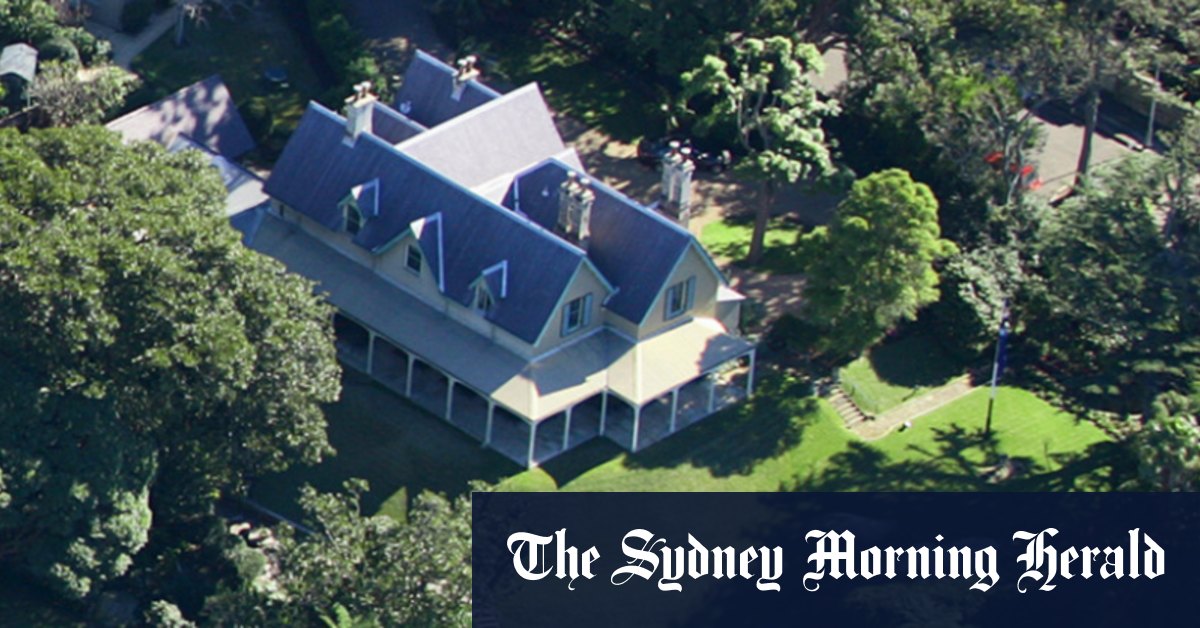Dutton's Kirribilli House: Double Standards Exposed? A Closer Look at the Controversy
The use of the iconic Kirribilli House by government ministers has once again ignited a firestorm of debate, with the recent extended stay of Minister Peter Dutton sparking accusations of double standards. This article delves into the controversy, examining the historical context, the current situation, and the arguments surrounding its ethical implications.
A Prime Minister's Residence, a Minister's Dilemma
Kirribilli House, a stunning waterfront property overlooking Sydney Harbour, serves as a secondary official residence for the Australian Prime Minister. However, its use extends beyond the Prime Minister, with other ministers occasionally granted access for official functions or, less frequently, extended stays. This practice has long been a source of contention, with critics arguing it represents an unfair allocation of resources and a potential conflict of interest.
Dutton's Extended Stay: The Spark Igniting the Debate
Minister Dutton's recent lengthy stay at Kirribilli House has intensified the criticism. While the exact reasons for the extended period remain unclear, the timing and duration have fueled accusations of preferential treatment and a disregard for the principles of transparency and accountability. This comes amid ongoing public scrutiny of government spending and resource allocation.
What are the key arguments against Dutton's stay?
- Lack of transparency: The exact reasons for the extended stay have not been publicly disclosed, leading to speculation and accusations of a lack of transparency.
- Perceived elitism: Critics argue that the use of Kirribilli House by ministers, particularly for extended periods, reinforces perceptions of elitism and detachment from the everyday concerns of the Australian public.
- Double standards: Comparisons are being made with previous instances where similar requests from other ministers were denied, leading to accusations of double standards and preferential treatment.
- Cost implications: While official figures are yet to be released, questions are being raised about the cost of security, maintenance, and staff associated with the extended stay.
The Counterarguments: A Case for Official Business?
Supporters of the Minister's stay argue that the use of Kirribilli House was justified for official business purposes. They maintain that the location and facilities offered advantages for conducting important meetings and official functions, leading to increased efficiency and better outcomes.
However, this argument faces challenges, including:
- Lack of specifics: A lack of detailed explanation about the official business conducted at Kirribilli House undermines this justification.
- Alternative locations: Critics argue that alternative locations could have been utilized, thus avoiding the appearance of preferential treatment and minimizing the cost to taxpayers.
The Broader Issue: Transparency and Accountability in Government
Beyond the specific case of Minister Dutton's stay, the controversy highlights a broader issue concerning transparency and accountability within the Australian government. The use of taxpayer-funded resources, including official residences, requires greater scrutiny and clearer guidelines to ensure fair and equitable allocation.
Moving forward, several steps could enhance transparency and accountability:
- Clearer guidelines: Establishing clear and publicly accessible guidelines for the use of Kirribilli House and other official residences.
- Public disclosure: Requiring detailed disclosure of the reasons and costs associated with any minister's use of official residences.
- Independent oversight: Implementing an independent oversight mechanism to review the allocation and use of government resources.
Conclusion: A Call for Greater Transparency
The Dutton Kirribilli House controversy underscores the need for greater transparency and accountability in the use of taxpayer-funded resources. While official business may necessitate the use of such facilities, the lack of clear guidelines and public disclosure fuels public distrust and accusations of double standards. A more transparent and accountable system is crucial to maintaining public confidence in the integrity of government.
Further Reading: (Links to relevant news articles and government websites could be added here)
(Call to Action - Subtle): Share your thoughts on the Kirribilli House controversy in the comments below. What reforms do you think are necessary to ensure greater transparency and accountability in government?

